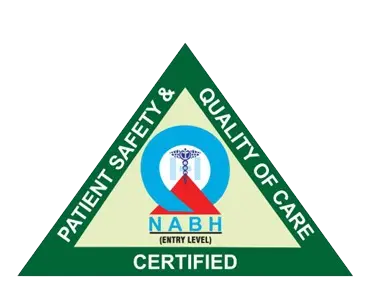easy Ways to Boost Your Metabolism Naturally
Metabolism refers to the chemical processes that occur in the body to maintain life. These processes include the conversion of food and drink into energy, the breakdown of molecules to generate heat, and the elimination of waste products. Metabolism is responsible for maintaining the body’s energy balance and regulating weight.
A person’s metabolic rate, or the rate at which the body burns calories, can affect weight and energy levels. A high metabolism means that the body burns calories quickly, while a low metabolism means that the body burns calories slowly.
People with a high metabolism tend to have more energy and find it easier to maintain a healthy weight, while people with a low metabolism may struggle to lose weight and may feel tired and sluggish.
However, it’s important to note that metabolism is not the only factor that affects weight and energy levels. A person’s overall diet and lifestyle choices, such as physical activity and stress levels, also play a significant role.
Additionally, genetics also play a role in metabolism, and some people may have a naturally higher or lower metabolism than others.
Ultimately, understanding metabolism and its effects on weight and energy levels can help individuals make informed choices about their diet, exercise, and lifestyle habits to optimize their metabolic rate and maintain healthy weight and energy levels.
The role of hormones in metabolism
Hormones play a crucial role in regulating metabolism. Several hormones produced by the endocrine glands, including the thyroid, adrenals, pancreas, and gonads, are involved in metabolism. These hormones affect the body’s energy balance, helping to control appetite, energy expenditure, and the storage and use of nutrients.
Thyroid gland produces hormones that regulate the body’s metabolic rate, which is the rate at which the body burns calories.
The thyroid hormones, triiodothyronine (T3) and thyroxine (T4) control the body’s energy balance by increasing the rate of metabolism and the use of energy. Low levels of thyroid hormones can lead to a slowed metabolism and weight gain, while high levels can cause weight loss and an increased metabolic rate. Hormone insulin, produced by the pancreas, regulates the body’s blood sugar levels by helping cells absorb glucose from the bloodstream.
Insulin also plays a role in fat storage by promoting the conversion of glucose to fat. High insulin levels can lead to weight gain and insulin resistance, while low levels can lead to weight loss.
Hormone cortisol, produced by the adrenal glands, is also involved in metabolism. Cortisol plays a role in the body’s stress response and can affect energy balance by increasing appetite and promoting the storage of fat, particularly in the abdominal area. High cortisol levels can lead to weight gain, while low levels can cause weight loss.
The hormone leptin, produced by fat cells, plays a role in regulating appetite and energy expenditure by signaling to the brain that the body has had enough to eat.
Low levels of leptin can lead to increased appetite and weight gain, while high levels can lead to weight loss.
It’s important to note that hormonal imbalances can disrupt metabolism and contribute to weight gain and other health problems. Therefore, it’s essential to maintain optimal hormonal balance through proper diet, exercise, and stress management, as well as seeking medical attention when necessary.
Factors that affect metabolism.
Several factors can affect metabolism, including:
- Genetics: Metabolism can be influenced by genetic factors, some people may have a naturally higher or lower metabolism than others..
- Age: As people age, their metabolism tends to slow down, which can make it more difficult to maintain a healthy weight.
- Gender: Men tend to have a higher metabolism than women, due to having more muscle mass.
- Body composition: People with more muscle mass tend to have a higher metabolism than those with more fat mass.
- Diet: The food we eat and the nutrients it contains can affect metabolism. A diet that is high in protein can boost metabolism, while a diet high in processed foods and added sugars can slow it down.
- Exercise: Regular physical activity can increase muscle mass and boost metabolism.
- Hormones: As mentioned before, hormones such as thyroid hormones, insulin, and cortisol play a crucial role in metabolism, and any imbalances in these hormones can affect metabolism.
- Stress: High levels of stress can lead to the release of cortisol, which can slow down metabolism and contribute to weight gain.
- Sleep: Adequate sleep is essential for maintaining a healthy metabolism, and a lack of sleep can disrupt hormone levels and slow down metabolism.
- Medications: Certain medications can affect metabolism and contribute to weight gain, such as antidepressants, birth control pills, and steroids.
- Environmental toxins: Exposure to certain chemicals and toxins can disrupt metabolism and contribute to weight gain and other health problems.
- Gut health: The gut microbiome plays a role in metabolism and poor gut health can affect metabolism and weight.
- Nutrient deficiencies: Deficiencies in certain nutrients, such as iron, vitamin D, and magnesium, can affect metabolism and contribute to weight gain and other health problems.
It’s important to keep in mind that metabolism is a complex process and it can be affected by multiple factors. Therefore, a holistic approach that includes a healthy diet, regular exercise, stress management, and proper medical attention is necessary to optimize metabolism.
Best Easy Way to Increase Metabolism Naturally
Here are some ways to naturally boost metabolism:
- Build muscle through strength training: Increasing muscle mass can boost metabolism, as muscle tissue burns more calories than fat tissue.
- Eat enough protein: Protein takes more energy to digest than carbohydrates or fat, so including enough protein in your diet can boost metabolism.
- Incorporate high-intensity interval training (HIIT) and other forms of cardio: This type of exercise increases the number of calories burned both during and after exercise, boosting metabolism.
- Stay hydrated by drinking enough water: Dehydration can slow down metabolism, so it’s important to drink enough water to keep the body functioning properly.
Eat a balanced diet with a variety of fruits, vegetables, and whole grains: Eating a diet rich in nutrient-dense foods can provide the body with the necessary fuel to boost metabolism.
- Incorporate Intermittent fasting: Intermittent fasting can help boost metabolism by promoting weight loss and encouraging the body to burn fat for energy.
Incorporate thermogenic foods such as ginger, cinnamon, cayenne pepper, and turmeric: These foods can help boost metabolism by increasing the body’s internal temperature, a process known as thermogenesis.
- Drinking green tea and other metabolism-boosting beverages: Green tea contains a compound called catechins, which can help boost metabolism.
- Adding apple cider vinegar to your diet: Some studies have found that consuming apple cider vinegar can help boost metabolism.
- Incorporating probiotics or fermented foods: Probiotics can improve gut health and can help boost metabolism.
- Avoiding processed foods and added sugars: These foods can slow down metabolism and contribute to weight gain.
- Practicing yoga and other stress-reducing activities: Stress can disrupt hormone levels and slow down metabolism, so it’s important to find ways to manage stress.
- Incorporating a good night’s sleep: Adequate sleep is essential for maintaining a healthy metabolism, and a lack of sleep can disrupt hormone levels and slow down metabolism.
- Consuming more nutrient-dense foods: Eating a diet rich in nutrient-dense foods can provide the body with the necessary fuel to boost metabolism.
Taking supplements such as magnesium, chromium, and iodine that help boost metabolism: Some supplements can help support metabolism, but it’s important to consult with a doctor before taking any supplements.




